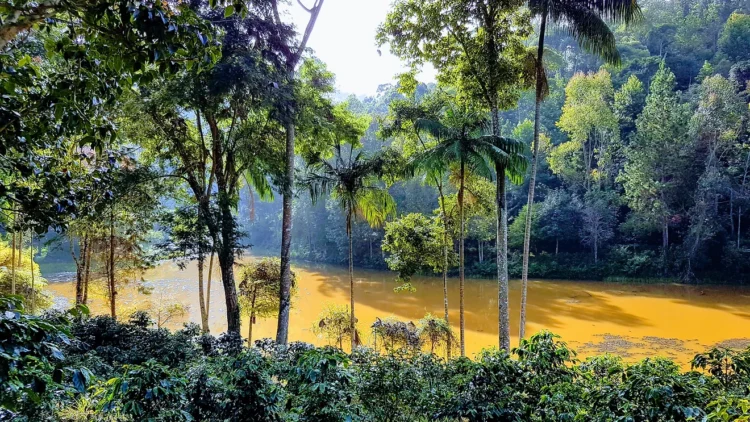
Perkee Santo organic coffee is grown in the Pedra Azul region in Espirito Santo State, Brazil. Farmer, Henrique Sloper inherited Fazenda Camocim from his grandfather in 1996. Henrique is a coffee entrepreneur and president of Brazil Speciality Coffee Association. His grandfather was also a pioneering producer of coffee. Since taking over the farm Henrique has implemented organic and biodynamic farming methods. This gives pest-resistant beans and higher-quality coffee. It also enriches the soil and improves the environment in Espirito Santo.
Naturally flavoursome
Perkee Santo’s beans are pulped naturally. The bean is dried with the skin removed and the pulp left intact. This gives Perkee Santos coffee a sweeter taste. It also allows the hazelnut, vanilla, and milk chocolate flavours to shine through.
Perkee organic and biodynamic
Less than 5% of the coffee grown worldwide is organic. The Camocim Estate is trailblazing. They grow organic, biodynamic and speciality certified coffee without pesticides or chemical additives. Camocim Estates accreditations include;
- EU Organic certified mark
- Certified 100% organic via the Government body ‘Produto Organico Brasil’ in Brazil
- 15% certified demeter Biodynamic.
Environmentally and socially responsible
This exclusive direct trade partnership pays organic producers even more than Fairtrade rates. This compensates for the extra costs associated with organic coffee farming, it;
- Encourages more farmers into organic practices
- Reduces carbon emissions
- Increases biodiversity
- Benefits local communities.
80% of Fazenda Camocim’s workforce is female. Fazenda Camocim’s positive social influence extends to neighbouring farms who grow 60% of Perkee Santos’ beans.
Ground to ground
Perkee Santo’s compostable bags and spent coffee grounds are both home compostable (they break down in 180 days). This provides the correct carbon-nitrogen ratio for compost. And organic materials decompose more quickly when the proper balance is created. These are the ways Perkee organic’s bags are designed to be compostable;
- Coffee bags are made from biodegradable paper
- Bag zippers and valves are made from plant cell which biodegrades and composts easily
- Labels are made from sugarcane bagasse fibres and with only 10% ink coverage, it breaks down naturally quicker.
Wendy Bartlett MBE, founder of BM Caterers said, “I am delighted that we have partnered with Henrique to create Perkee Santo. It’s important that we support the growth of sustainable farming. Our experience gained from developing Perkee Soppexcca showed a growing demand for organic coffee driven by the sustainability concerns of consumers. By leading the change from the consumer-side farmers see the benefit to switching to more organic farming practices. And Perkee Santo gives our customers a premium and delicious tasting coffee too.”